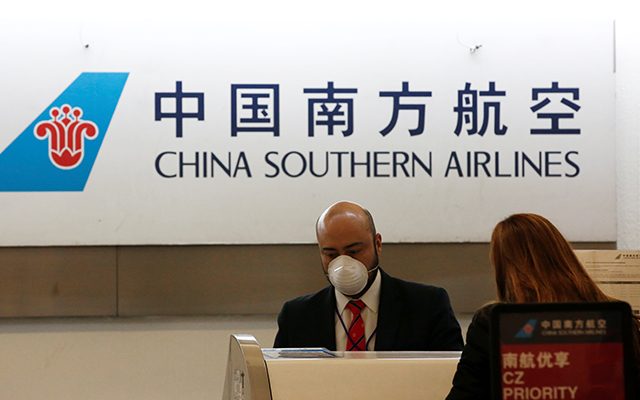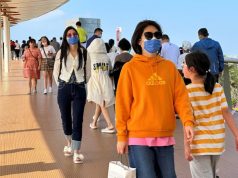
BEIJING — The death toll from the coronavirus outbreak in China rose to 131 as health authorities at the epicenter of the epidemic reported another 840 confirmed cases, even as Beijing reiterated its confidence in containing the disease.
Fears of the spreading virus led airlines to reduce flights to China and global companies to restrict employee travel to the country. CNBC reported that the White House had told U.S. airlines it may suspend all China-U.S. flights due to the outbreak.
The Hubei province health authority said in a statement early Wednesday that 25 further people had died as of end-Tuesday. The virus emerged late last year in Wuhan, Hubei’s capital and a major transportation hub, and much of the province has been under virtual lockdown as China seeks to contain the virus from spreading further.
With Hubei’s latest figures, the total number of confirmed cases in China is at least 5,355. China’s National Health Commission on Tuesday reported a total of 4,515 cases as of end-Monday and is expected to give an updated national tally later on Wednesday.
The flu-like virus has spread overseas to more than a dozen countries. None of the confirmed deaths to date has been outside China. However, confirmations of person-to-person transmission in Germany, Vietnam, Taiwan and Japan – as opposed to a traveler from China – has heightened concern.
Known as “2019-nCoV”, the newly identified coronavirus can cause pneumonia and, like other respiratory infections, it spreads between people in droplets from coughs and sneezes. It is too early to know what its death rate will be, since there are likely to be many cases of milder disease going undetected.
“The virus is a devil and we cannot let the devil hide,” state television quoted Chinese President Xi Jinping said during a meeting with World Health Organization (WHO) chief Tedros Adhanom Ghebreyesus in Beijing on Tuesday.
“China will strengthen international cooperation and welcomes the WHO participation in virus prevention… China is confident of winning the battle against the virus.”
China’s assurances failed to calm investors, however, as and health authorities around the world continued to step up efforts to stop the virus from spreading on their shores.
The United States said it was expanding screening of arrivals from China from five to 20 airports and would consider imposing further travel curbs.
“All options for dealing with infectious disease spread have to be on the table, including travel restrictions,” said U.S. Health Secretary Alex Azar.
From France to Japan, governments were organizing evacuations, while Hong Kong – scene of anti-China unrest for months – planned to suspend rail and ferry links with the mainland. United Airlines said it was suspending some flights between the United States and China for a week from Feb. 1 due to a “significant decline in demand.”
The U.S. Embassy in Beijing said a chartered plane would pick up its consular staff on Wednesday. The European Commission said it would help fund two aircraft to fly EU citizens home, with 250 French nationals leaving on the first flight.—Reporting by Huizhong Wu in Beijing; Additional reporting by Michelle Nichols at the United Nations, Stephanie Nebehay in Geneva, Matthias Blamont in Paris, Manas Mishra in Bengaluru and Caroline Humer in New York; writing by Se Young Lee; Editing by Rosalba O’Brien









